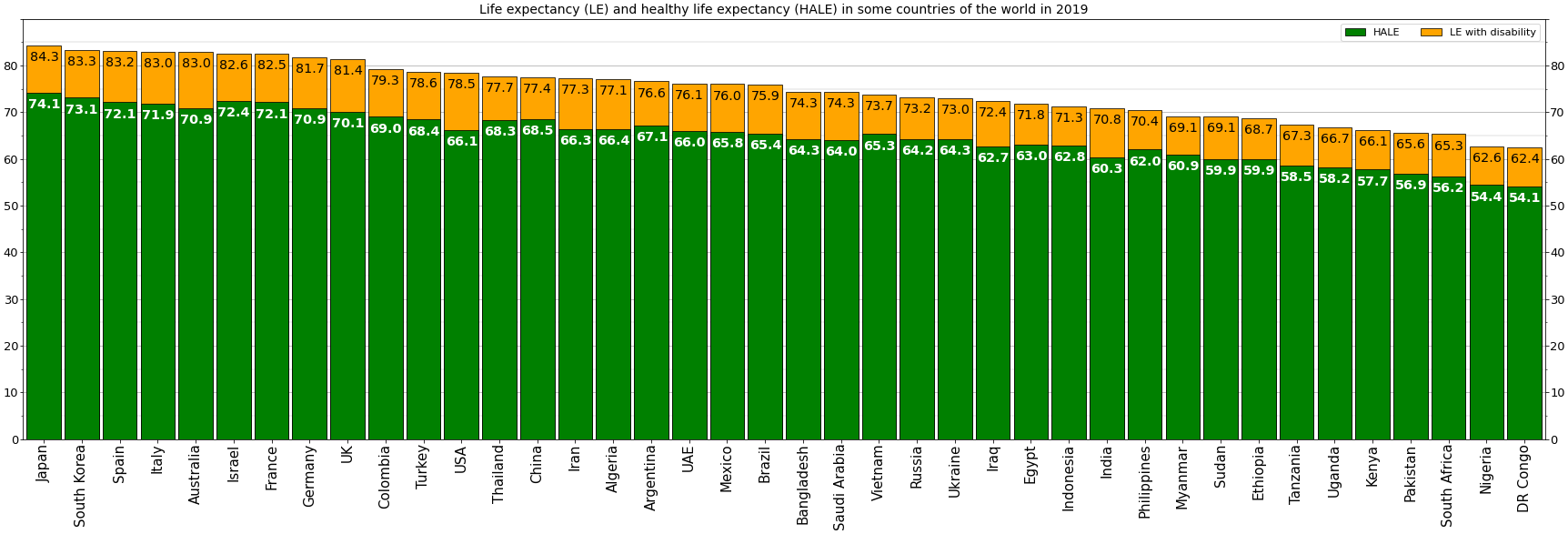|
Four Pillars (Geneva Association)
The Four Pillars is a research programme set up in 1987 by the Geneva Association, also known as the International Association for the Study of Insurance Economics. The aim of the ''Four Pillars'' research programme is to study the key importance in the new service economy of Social Security, Insurance, Savings and Employment. The programme focuses on the future of pensions, welfare and employment. The Geneva Association launched its ''Four Pillars'' research programme with a view to identifying possible solutions to the issue of the future financing of pensions and, more generally, to organising social security systems in our post-industrial societies. Demographic trends - especially increased life and health expectancy - could be seen as positive if we were able to devise ways of enabling "ageing in good-health populations" to make a valid economic and social contribution to the functioning of our service economies over the decades to come. The concept of the ''Four Pill ... [...More Info...] [...Related Items...] OR: [Wikipedia] [Google] [Baidu] |
Geneva Association, The
''Insurance Economics'' is a research programme set up by the Geneva Association, also known as the International Association for the Study of Insurance Economics. It is dedicated to making an original contribution to the progress of insurance through promoting studies of the interdependence between economics and insurance, to highlight the importance of risk and insurance economics as part of the modern general economic theory, to detect and define special aims for research programmes in risk and insurance economics, to stimulate and support academic and professional research work in risk and insurance economics throughout the world, and to diffuse knowledge and the results of research in risk and insurance economics worldwide. The Geneva Association has been the founding institution of the European Group of Risk and Insurance Economists (EGRIE) one of worldwide now three regional organisations that organise (mostly) academic experts in the fields of risk and insurance economics. ... [...More Info...] [...Related Items...] OR: [Wikipedia] [Google] [Baidu] |
European Commission
The European Commission (EC) is the primary Executive (government), executive arm of the European Union (EU). It operates as a cabinet government, with a number of European Commissioner, members of the Commission (directorial system, informally known as "commissioners") corresponding to two thirds of the number of Member state of the European Union, member states, unless the European Council, acting unanimously, decides to alter this number. The current number of commissioners is 27, including the president. It includes an administrative body of about 32,000 European civil servants. The commission is divided into departments known as Directorate-General, Directorates-General (DGs) that can be likened to departments or Ministry (government department), ministries each headed by a director-general who is responsible to a commissioner. Currently, there is one member per European Union member state, member state, but members are bound by their oath of office to represent the genera ... [...More Info...] [...Related Items...] OR: [Wikipedia] [Google] [Baidu] |
Life Insurance
Life insurance (or life assurance, especially in the Commonwealth of Nations) is a contract A contract is an agreement that specifies certain legally enforceable rights and obligations pertaining to two or more parties. A contract typically involves consent to transfer of goods, services, money, or promise to transfer any of thos ... between an insurance policy holder and an insurance , insurer or assurer, where the insurer promises to pay a designated beneficiary a sum of money upon the death of an insured person. Depending on the contract, other events such as terminal illness or critical illness can also trigger payment. The policyholder typically pays a premium, either regularly or as one lump sum. The benefits may include other expenses, such as funeral expenses. Life policies are legal contracts and the terms of each contract describe the limitations of the insured events. Often, specific exclusions written into the contract limit the liability of the insurer; c ... [...More Info...] [...Related Items...] OR: [Wikipedia] [Google] [Baidu] |
Retirement
Retirement is the withdrawal from one's position or occupation or from one's active working life. A person may also semi-retire by reducing work hours or workload. Many people choose to retire when they are elderly or incapable of doing their job for health reasons. People may also retire when they are eligible for private or public pension benefits, although some are forced to retire when bodily conditions no longer allow the person to work any longer (by illness or accident) or as a result of legislation concerning their positions. In most countries, the idea of retirement is of recent origin, being introduced during the late-nineteenth and early-twentieth centuries. Previously, low life expectancy, lack of social security and the absence of pension arrangements meant that most workers continued to work until their death. Germany was the first country to introduce retirement benefits in 1889. Nowadays, most developed countries have systems to provide pensions on retirement in ... [...More Info...] [...Related Items...] OR: [Wikipedia] [Google] [Baidu] |
Life Expectancy
Human life expectancy is a statistical measure of the estimate of the average remaining years of life at a given age. The most commonly used measure is ''life expectancy at birth'' (LEB, or in demographic notation ''e''0, where ''e''x denotes the average life remaining at age ''x''). This can be defined in two ways. ''Cohort'' LEB is the mean length of life of a birth Cohort (statistics), cohort (in this case, all individuals born in a given year) and can be computed only for cohorts born so long ago that all their members have died. ''Period'' LEB is the mean length of life of a hypothetical cohort assumed to be exposed, from birth through death, to the mortality rates observed at a given year. National LEB figures reported by national agencies and international organizations for human populations are estimates of ''period'' LEB. Human remains from the early Bronze Age indicate an LEB of 24. In 2019, world LEB was 73.3. A combination of high infant mortality and d ... [...More Info...] [...Related Items...] OR: [Wikipedia] [Google] [Baidu] |
Social Welfare
Welfare spending is a type of government support intended to ensure that members of a society can meet basic human needs such as food and shelter. Social security may either be synonymous with welfare, or refer specifically to social insurance programs which provide support only to those who have previously contributed (e.g. pensions), as opposed to ''social assistance'' programs which provide support on the basis of need alone (e.g. most disability benefits). The International Labour Organization defines social security as covering support for those in old age, support for the maintenance of children, medical treatment, parental and sick leave, unemployment and disability benefits, and support for sufferers of occupational injury. More broadly, welfare may also encompass efforts to provide a basic level of well-being through subsidized ''social services'' such as healthcare, education, infrastructure, vocational training, and public housing.''The New Fontana Dictionar ... [...More Info...] [...Related Items...] OR: [Wikipedia] [Google] [Baidu] |
Gross Domestic Product
Gross domestic product (GDP) is a monetary measure of the total market value of all the final goods and services produced and rendered in a specific time period by a country or countries. GDP is often used to measure the economic performance of a country or region. Several national and international economic organizations maintain definitions of GDP, such as the OECD and the International Monetary Fund. GDP is often used as a metric for international comparisons as well as a broad measure of economic progress. It is often considered to be the world's most powerful statistical indicator of national development and progress. The GDP can be divided by the total population to obtain the average GDP per capita. Total GDP can also be broken down into the contribution of each industry or sector of the economy. Nominal GDP is useful when comparing national economies on the international market according to the exchange rate. To compare economies over time inflation can be adjus ... [...More Info...] [...Related Items...] OR: [Wikipedia] [Google] [Baidu] |
Center For Strategic And International Studies
The Center for Strategic and International Studies (CSIS) is an American think tank based in Washington, D.C. From its founding in 1962 until 1987, it was an affiliate of Georgetown University, initially named the Center for Strategic and International Studies of Georgetown University. The center conducts policy studies and strategic analyses of political, economic and security issues throughout the world, with a focus on issues concerning international relations, trade, technology, finance, energy and geostrategy. Since its founding, CSIS "has been dedicated to finding ways to sustain American prominence and prosperity as a force for good in the world", according to its website. CSIS is officially a bipartisan think tank with scholars that represent varying points of view across the political spectrum. It is known for inviting well-known foreign policy and public service officials from the U.S. Congress and the executive branch, including those affiliated with either the Democ ... [...More Info...] [...Related Items...] OR: [Wikipedia] [Google] [Baidu] |
OECD
The Organisation for Economic Co-operation and Development (OECD; , OCDE) is an international organization, intergovernmental organization with 38 member countries, founded in 1961 to stimulate economic progress and international trade, world trade. It is a forum (legal), forum whose member countries describe themselves as committed to democracy and the market economy, providing a platform to compare policy experiences, seek answers to common problems, identify good practices, and coordinate domestic and international policies of its members. The majority of OECD members are generally regarded as developed country, developed countries, with High-income economy, high-income economies, and a very high Human Development Index. their collective population is 1.38 billion people with an average life expectancy of 80 years and a median age of 40, against a global average of 30. , OECD Member countries collectively comprised 62.2% of list of countries by GDP (nominal), global nom ... [...More Info...] [...Related Items...] OR: [Wikipedia] [Google] [Baidu] |
World Economic Forum
The World Economic Forum (WEF) is an international non-governmental organization, international advocacy non-governmental organization and think tank, based in Cologny, Canton of Geneva, Switzerland. It was founded on 24 January 1971 by German engineer Klaus Schwab. The foundation's stated mission is "improving the state of the world by engaging business, political, academic, and other leaders of society to shape global, regional, and industry agendas". The foundation is mostly funded by its 1,000 member Multinational corporation, multi-national companies. The WEF is mostly known for its annual meeting at the end of January in Davos, a mountain resort in the canton of Graubünden, in the eastern Alps region of Switzerland. The meeting brings together some 3,000 paying members and selected participants – among whom are investors, business leaders, political leaders, economists, celebrities and journalists – for up to five days to discuss list of global issues, global issu ... [...More Info...] [...Related Items...] OR: [Wikipedia] [Google] [Baidu] |
International Social Security Association
The International Social Security Association (ISSA) is an international organization bringing together national social security administrations and agencies. Founded in 1927, the ISSA has more than 330 member organizations in 158 countries. It has its headquarters in Geneva, Switzerland, in the International Labour Office (ILO). Social security The recognition of social security as a basic human right is enshrined in the Universal Declaration of Human Rights (1948). The development of social security programmes is considered to be one of the most significant social achievements of the international community, but its enhancement and extension remain one of the main challenges of the 21st century. As per the ISSA Constitution, the term "social security" means any scheme or programme established by legislation, or any other mandatory arrangement, which provides protection, whether in cash or in kind, in the event of employment accidents, occupational diseases, unemployment, mat ... [...More Info...] [...Related Items...] OR: [Wikipedia] [Google] [Baidu] |
Social Security
Welfare spending is a type of government support intended to ensure that members of a society can meet basic human needs such as food and shelter. Social security may either be synonymous with welfare, or refer specifically to social insurance programs which provide support only to those who have previously contributed (e.g. pensions), as opposed to ''social assistance'' programs which provide support on the basis of need alone (e.g. most disability benefits). The International Labour Organization defines social security as covering support for those in old age, support for the maintenance of children, medical treatment, parental and sick leave, unemployment and disability benefits, and support for sufferers of occupational injury. More broadly, welfare may also encompass efforts to provide a basic level of well-being through subsidized ''social services'' such as healthcare, education, infrastructure, vocational training, and public housing.''The New Fontana Diction ... [...More Info...] [...Related Items...] OR: [Wikipedia] [Google] [Baidu] |







